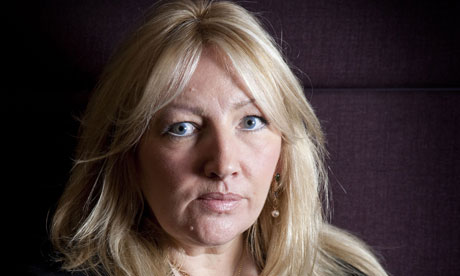
Sly Bailey's ousting as Trinity Mirror's chief executive, dispiritingly, stems from a row about pay. She refused to take a meaningful cut to her £1.7m pay package, and with investors unplacated, the board had little option but to tell her to resign after 10 years at the top of the company that likes to tell people it is Britain's largest newspaper group, although it owns only the third best-selling daily. But while any revolt can trigger enjoyable atavistic sentiments, the truth is that Bailey should have gone several years ago – a point several company executives were only too eager to make in private.
It has been obvious since Trinity Mirror finished a strategic review in 2006 that ended with nothing much changing that Bailey was short on ideas. No socialist billionaire emerged prepared to pay more than 45p for the Mirror, although the Racing Post was offloaded while a sale of its Birmingham titles was abandoned because the offers were too low (although doubtless higher than anything achievable today). The share price has fallen 94% in five years since then; it has been less than £1 since late 2010. There were no signs of a growth strategy: revenues were £932m in 2007; they were £747m last year and all that was on offer seemed to be the exquisite management of decline. Digital revenues, about 5% of the total, barely grew last year.
But that's all right, because Bailey knew how to extract profit from the national newspapers. Trinity Mirror's problems stem from the sharp contraction of the regional press, which, make no bones about it, is heading into existential crisis. The Mirror, and the other nationals, generated £94m in 2007 and £83m last year, with the company trumpeting margins of 18.3% when its competitors are content with far less.
The Mail titles run at a margin of 9%; the difference is accounted for by what one might think of as investment in the product. The Sun, too, invests more on the page, in buyups and in the cover price, but in Bailey's company all that mattered was squeezing out that £80m-plus a year – when perhaps investors should have been told during the financial crisis that squeezing profit costs readers in the long run. The failure to exploit Rupert Murdoch's seven-month absence from the Sunday market was typical of the opportunities missed. Instead, as the Sunday Sun rose, Bailey wanted the nationals to sacrifice another 75 jobs this year, a decision prompting near-universal gloom in the newsroom – the thinking of a company that believed that newspapers were simply in unrelenting decline, which, incredibly, was tolerated by a sleepy board led by Sir Ian Gibson. Yet the mounting signs of strategic failure were not the reasons why Bailey went. Instead the trigger was her refusal to take a six-figure pay cut, unless of course new chairman David Grigson has been wilier than we thought.
There seems little doubt that Trinity Mirror needs two strategies. The company has to confront more explicitly the challenges for regional newspapers, although despite everything regional papers enjoy double-digit profit margins. Even so, a dramatic solution is needed: perhaps a shotgun spinoff and merger between Trinity Mirror's regionals and, say, the titles owned by DMGT – and, given the industry pressures, regulators need to take a benign view.
Meanwhile, the Daily Mirror sells 1.1m copies with the Daily Record contributing 294,000 and Murdoch, for once, is a little more vulnerable than usual. However, the Mirror's digital offering is underpowered compared to market-leading Mail Online, although celebrities up at 3am ought to sell. Investment in price and product can only improve matters, as can a fresh injection of leadership, which Bailey seems to have given up on.

